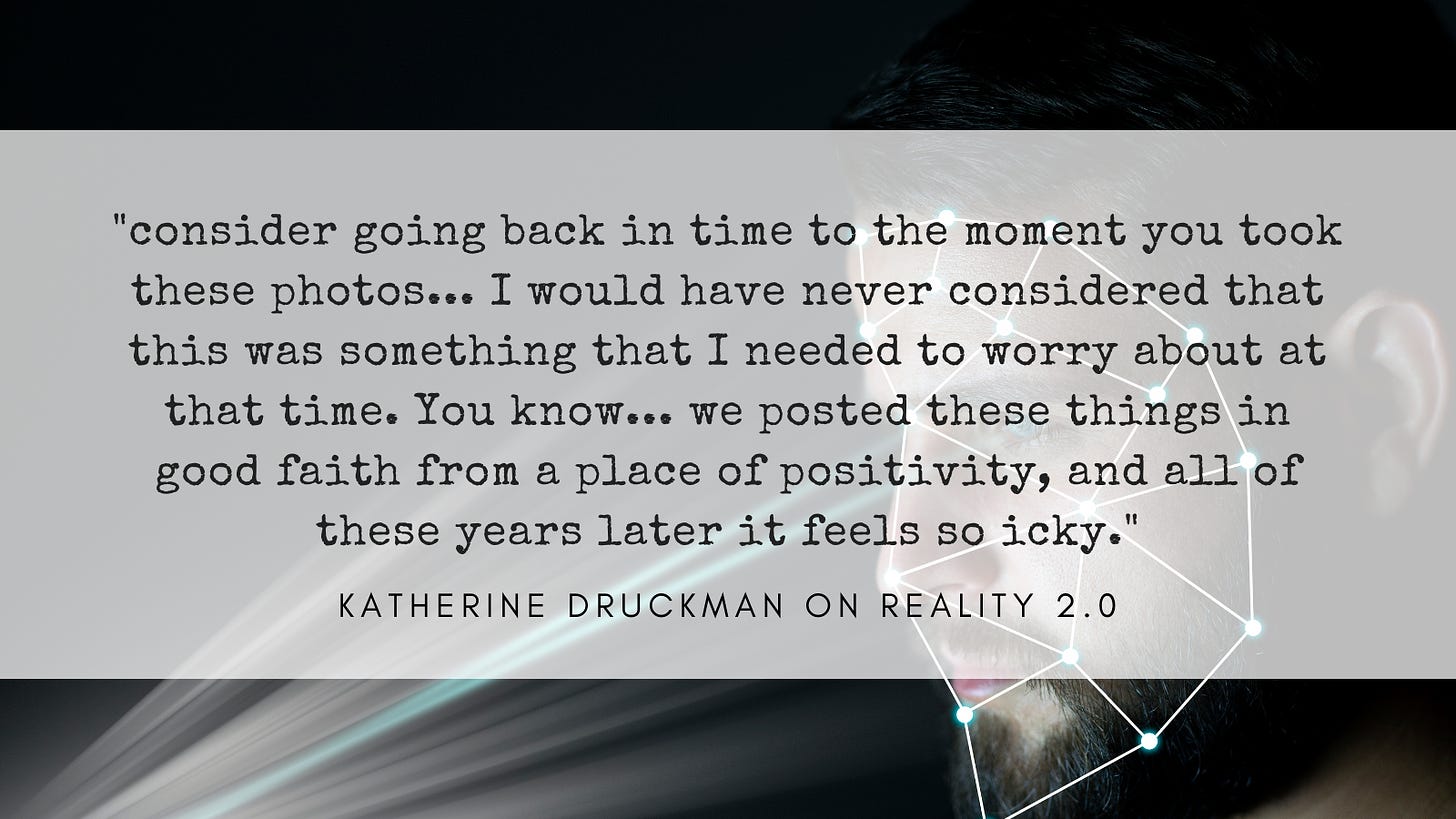To get this weekly dose of Reality delivered by email, sign up on our Substack page.
A Quick Plug
Episode 57: You Look Familiar, Did I See You on the Internet?
Katherine Druckman and Doc Searls talk facial recognition AI using our photos for training, and how we collectively negotiate our own privacy online.
Please remember to subscribe via the podcast player of your choice.

In previous episodes, we have talked at length about the ethics of facial recognition technology, but last week’s episode addresses a slightly different angle. When it is our own photos fueling the AI that powers facial recognition datasets, we felt much closer to the ethical dilemma. Most of us leave traces of our lives around the internet, but when you include images of others in your online record, what is your responsibility to protect your photos’ subjects?
If you have used photo hosting platforms like Flickr, or even Facebook, for a while, you have probably shared photos of other people for much longer than facial recognition technology has been so frequently in the news. With that in mind, how do we change our habits to fit within our own ethical framework and respect the wishes of our acquaintances?
We hope you’ll listen to the episode and send us our thoughts here in a comment, or on any of our social outlets, or via our contact form.
Site/Blog/Newsletter | Facebook | Twitter | YouTube | Mastodon
This Week’s Reading List
This new tool can tell you if your online photos are helping train facial recognition systems - CNN — Exposing.ai, unveiled in January, lets you know whether photos you've posted to image-sharing site Flickr have been used to advance this controversial application of artificial intelligence by allowing you to search more than 3.6 million photos in six facial-recognition image datasets.
Check if your photos were used in AI surveillance research projects — Check if your Flickr photos were used to build face recognition
Clearview AI’s Facial Recognition App Called Illegal in Canada - The New York Times — Canadian authorities declared that the company needed citizens’ consent to use their biometric information, and told the firm to delete facial images from its database.
This 'Anonymizer' Tool Replaces Your Face With a Fake to Trick Facial Recognition | Debugger — Try the Anonymizer tool to create a fake face that looks like you
Doc Searls Weblog · About face — We know more than we can tell.
Sun on Privacy: 'Get Over It' | WIRED — "You have zero privacy anyway," Scott McNealy told a group of reporters and analysts Monday night at an event to launch his company's new Jini technology. "Get over it."
A Vast Web of Vengeance - The New York Times — Outrageous lies destroyed Guy Babcock’s online reputation. When he went hunting for their source, what he discovered was worse than he could have imagined.
Canadian Woman Accused of Defaming Dozens Online Is Arrested in Toronto - The New York Times — Nadire Atas, a Canadian woman who wrote thousands of online posts defaming her perceived enemies, was arrested on Tuesday by the police in Toronto. She was charged with crimes including harassment and libel, a Toronto police spokeswoman said.
CORE Response: Community Organized Relief Effort — Together, we save lives.
The Reality 2.0 Podcast explores how tech, privacy, and security impact reality in a post-COVID world. Subscribe now and don't miss a thing! We welcome your feedback at our contact page.
